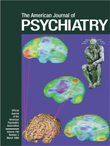In recent years, individuals with schizophrenia have increasingly had success in their rehabilitation, resulting in a more positive outlook on this illness. By combining anecdotes, biographical accounts, and summaries of research, Peter Chadwick has written a book aimed at instilling hope and understanding for those with a diagnosis of schizophrenia and their families. As a psychologist who has himself experienced psychosis, Chadwick emphasizes the special and desirable qualities that can characterize schizophrenia. This emphasis is, at first glance, quite unsettling: what could be positive about having schizophrenia?
Chadwick encourages readers to make a transition in their thinking about schizophrenia from a medical model to an individualized perspective. He describes individuals who have gone through psychotic episodes and managed to find a new equilibrium in their lives. With this new equilibrium may come creativity, empathy, and even paranormal capacities that are positively experienced by schizophrenia-prone individuals but are disregarded or derogated in the conventional literature.
By describing his personal experiences before, during, and after an acute psychotic episode, Chadwick opens a window that enables the reader to understand the evolution of affect and thought processes in psychosis. Although the author emphasizes personal coping and is favorably disposed toward nontraditional lifestyles, he also endorses the value of more traditional treatments, including medical care, neuroleptics, and psychosocial interventions.
One of the difficulties in this book pertains to the research, in which the author attempts to prove the existence of links among creativity, empathy, cigarette smoking, nonconformity, and psychoticism. The instruments used are sometimes questionable, the diagnoses are questionable, and only correlations are presented, leaving causal inferences among the variables confounded. The book is also difficult to read; the author switches from conceptual theories to empirical results, from autobiography and other biographies, back to research results, finally ending with his guidelines for coping with psychosis. However, this nonlinearity corresponds to the theme of the book—that is, becoming open to the unusual, which can characterize schizophrenia-prone individuals, including the author.
For whom might this book be useful? A spectrum of people may find the author’s thesis encouraging. These include high-functioning and literate individuals who have schizophrenia spectrum disorders (especially those with delusional, schizotypal, and borderline disorders); family members who are in denial of their relative’s psychotic illness and need to hear something positive about psychosis; patients, family members, and clinicians who are seeking novel methods of coping with psychosis and helping mentally ill consumers achieve a balanced and stable life; and academics who may be stuck in biological reductionism in their teaching and research on schizophrenia spectrum disorders. Although many people pay lip-service to the heterogeneity of schizophrenia, we all can benefit from being reminded that schizophrenia presents many faces and that individuals experiencing this disorder do not suffer the same way, experience the same symptoms or social deficits, or require the same form of treatment.
The book ends on a positive and upbeat note with the author encouraging practitioners and families to assist people with schizophrenia to build on their assets and unique capacities and to live productively. In the final analysis, the book reminds us that we can learn as much from our patients—if we listen, observe, and focus on their positive qualities—as our patients can learn from us.

